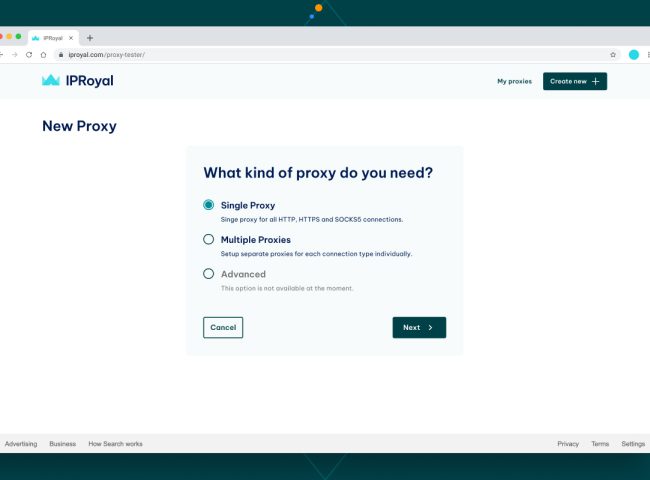Are you prepared to enhance your online experience? Learn how to set up a proxy with Playwright in our most recent blog post.
Playwright has you covered whether you need privacy, worldwide content access, or advanced testing features. Stay tuned to find out how to use a proxy for seamless browsing!
To set up a proxy with Playwright
Playwright is available in two flavors: synchronous and asynchronous. The former is ideal for minor fetches where parallelism isn’t a concern. The second technique is recommended for applications that require concurrency, scalability, and performance.
With that in mind, the following tutorial will concentrate on the Playwright asynchronous API. As a result, we must import the async_playwright and asyncio modules.
from playwright.async_api import async_playwright
import asyncio- Then, as demonstrated in the following example, you build an asynchronous function that launches a new browser and passes your proxy details as a distinct parameter. if you don’t have a proxy yet we recommend you Proxy-cheap.
from playwright.async_api import async_playwright
import asyncio
async def main():
async with async_playwright() as playwright:
browser = await playwright.chromium.launch(
proxy={
'server': "proxy_host:port",
'username': 'your_username',
'password': 'your_password',
},
)- Create a new browser context and navigate to a new page within it.
context = await browser.new_context()
page = await context.new_page()
- Finally, navigate to your desired website, search for the required information, and close your browser. In this example, we are scanning HTTBin, an API whose HTML content is the requester’s IP address.
await page.goto("https://httpbin.org/ip")
html_content = await page.content()
print(html_content)
await context.close()
await browser.close()
- Putting everything together and calling the function, we get the following code:
from playwright.async_api import async_playwright
import asyncio
async def main():
async with async_playwright() as playwright:
browser = await playwright.chromium.launch(
proxy={
'server': "proxy_host:port",
'username': 'your_username',
'password': 'your_password',
},
)
context = await browser.new_context()
page = await context.new_page()
await page.goto("https://httpbin.org/ip")
html_content = await page.content()
print(html_content)
await context.close()
await browser.close()
asyncio.run(main())
- Here’s what you need to find:
##....
{
origin": "Your proxy IP address
}The above result should be the IP address of your proxy. Now you know how to configure a Playwright proxy.
Conclusion
Using Playwright’s proxy settings to navigate the digital world is a game changer. You now have the keys to increased privacy, exact geolocation, and granular testing. With this newfound information, you can explore the Internet from other angles.
Playwright‘s proxy integrations might help you evade restrictions or ensure your website runs smoothly.
Happy scraping!
I’m Amine, a 34-year-old mobile enthusiast with a passion for simplifying the world of proxy providers through unbiased reviews and user-friendly guides. My tech journey, spanning from dial-up internet to today’s lightning-fast mobile networks, fuels my dedication to demystifying the proxy world. Whether you prioritize privacy, seek marketing advantages, or are simply curious, my blog is your trusted source.






Leave feedback about this